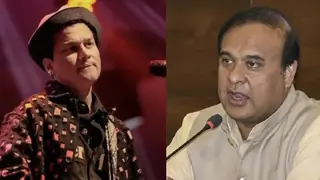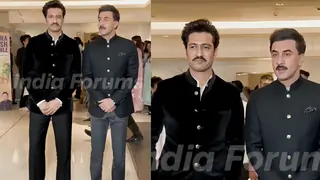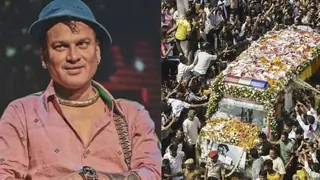This is what we should do...
http://in.rediff.com/news/2006/jul/13shishir.htm
However, there is nothing inevitable about India's resolve to wipe out terrorism.
But let me come back to the present. A day after the blasts, I boarded the first-class compartment of a Mumbai suburban train. It wasn't bursting at the seams with passengers, like it normally does, but I couldn't discern fear on the faces of my fellow passengers, only a weary cautiousness. Their voices, however, were laced with anger.
The snatches of conversation that I could hear centered on the Indian State's 'impotency' at fighting terrorism and what it should do to destroy terrorists. But the common man does not have the right to influence the State's policy towards matters as important as these, does he? So what if he has the right to vote governments to power.
India, time and again, has failed to wield the hammer against the lowly terrorist, often letting its citizens down. And despite what our leaders would have us believe, we are a soft State: a fact fully understood and exploited by terrorists.
After every such attack, the political establishment makes some threatening noises, hails the spirit of the civilians, holds aloft the pennant of peace, even launches buses to inimical nations, and then sits tight on its backside till the next wave of bombs rips the stuffing out of its citizenry. Then it is back to the same idiotic idiom.
But the common man, who actually bears the brunt of terrorism, has a different view, as that train ride told me. India needs to hit them where it hurts the most: squeeze the breath out of their networks, starve them for funds, take out their leaders (who we claim to know are hiding in this country or that), smash their hideouts, terrorise their associates.
No sooner is such an opinion voiced than human rights groups😡, 'saner' elements in the political firmament, self-styled negotiators and strategists jump into the fray to say: 'No, no, we should engage these 'people' in a dialogue. We are a peace-loving nation and terrorism needs to be resolved through peaceful means, through tolerance, through negotiations, abiding by international laws.'
We are told: 'We need to fight terrorism by understanding what triggers it and then remedying the situation. And by making 'them see reason.' Reason, my foot! The next thing you know' that bloke will be stuffing a dynamite stick down your throat and lighting the fuse.
Many people agree that international terrorism cannot be brought to an end only by the use of bombs and military might, but neither can it be ended with mere talk. What is needed is a heavy dose of ruthless action to go hand in hand with tactical and strategic negotiations.
The nation should be ready to negotiate, with the underlying condition that if there is any terrorist act against its citizens, there will be hell to pay.
This is not some original thought. We hear it all the time. The common man says:
- Strengthen the infrastructure and the intelligence network. Educate the society on how to remain alert and control panic. Set up crack commando groups -- comprising snipers, specially trained and equipped assault teams, state-sponsored combatants -- who will engage in unconventional warfare. Dry up the terrorists' sources of funding: drug trafficking, robbery, extortion, playing on international stock markets, donations. Keep a hawk's eye on hostile locations and smash them up. Take out leaders of these organisations, no matter where they take refuge.
- Tighten the nation's borders even more, except maybe for trade.
Not an easy task, but not impossible either. The might of the Indian State is hardly something to scoff at. Disuse of power is worse than its misuse. It is time for Indians to roll up their sleeves, spit on their hands and get to work.
The one-track 'mature, gentile, peaceful' way of unraveling this menace only ends up in making the nation appear impotent. Just because the citizens are brave and spirited doesn't mean they have to keep suffering.
The common man wants a strong message be sent out: if any Indian is harmed in any manner, we will hunt you down and exterminate you, no matter how fast you run or where you hide.
The terrorist has no human rights; he loses them the instant he points his gun at humanity. He is not a signatory to the Geneva Convention and international laws of war should not apply to him. Since he chooses to live by the gun, he deserves to die by it.
Sounds uncivilised? Like out of a trashy thriller? Maybe. But ask the newly-wed girl whose husband was blown to pieces in the blasts, ask the old widow whose only earning son will walk no more...
India needs to be ruthless in its vengeance. The inevitability of punishment could nip many a hostile intent in the bud.




























15